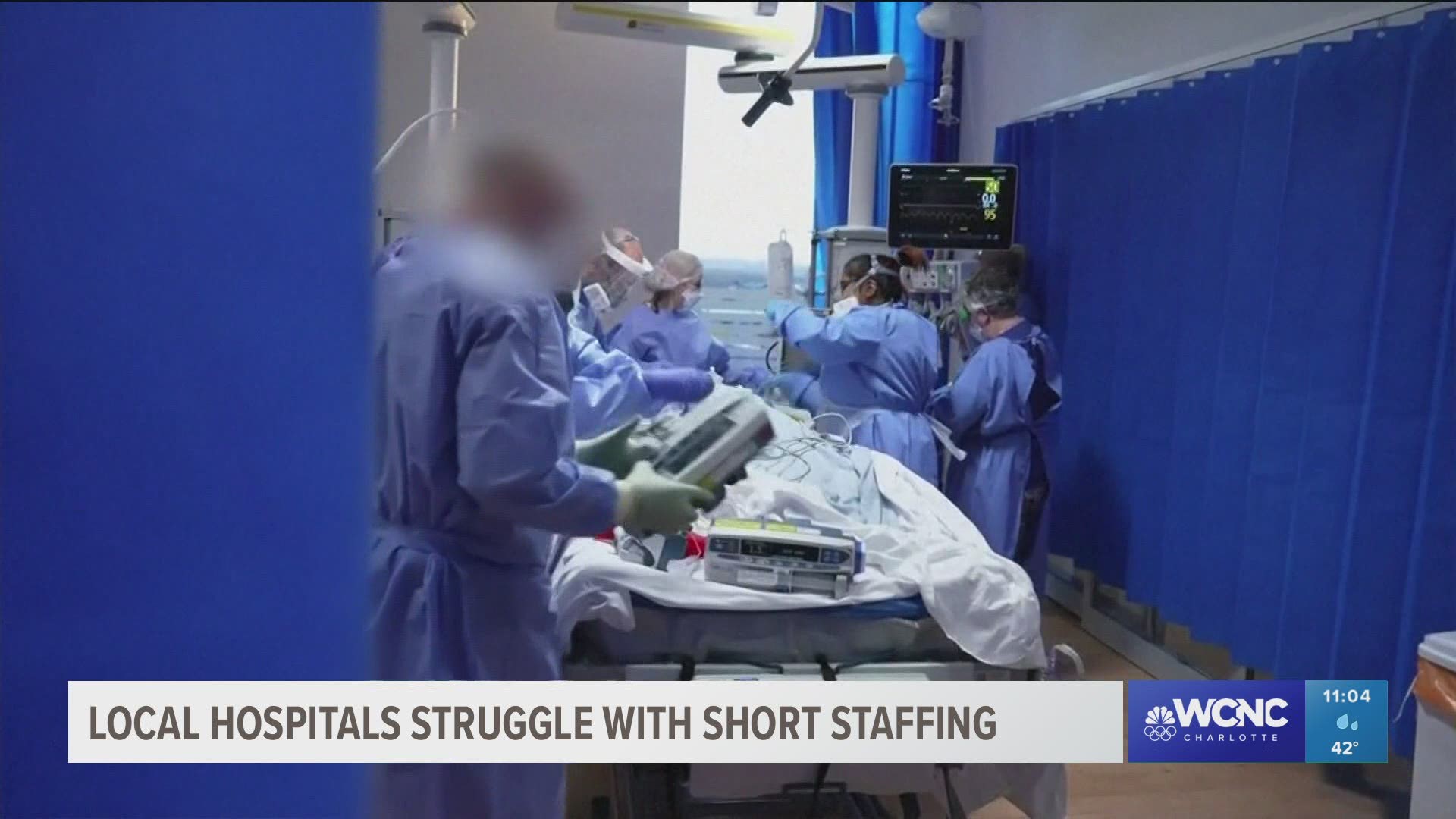CHARLOTTE, N.C. — Coronavirus-related hospitalizations in the Carolinas are at their highest levels of the pandemic, and health officials only expect those numbers to climb over the next few weeks.
However, that trend does not just pose a problem for hospital bed space. Some hospital systems are closely watching their staff numbers.
Because as the prevalence of COVID-19 in the community grows, which current metrics show is happening, so does the likelihood of medical professionals falling ill from the virus.
"A number of them are out, like everybody else in the community, because they've either gotten COVID or from being in quarantine, and that's simply because of being a community member," said Dr. Sidney Fletcher, Senior Vice President and Chief Clinical Officer for Novant Health.
In Mecklenburg County, hospital systems Atrium Health and Novant Health report bed occupancies around 90 to 95%, which both hospitals said can be typical for this time of year, when demand tends to grow, even without a pandemic.
However, hospital leaders state that capacities are constantly being assessed.
Both systems continue to conduct non-urgent medical procedures, but warn that those could be tapered down as COVID patients increase.
One reason elective procedures are able to continue is that the systems have already grown their bed space throughout the pandemic. Novant Health reports increasing bed capacity by 60% since the pandemic began.
The systems have also been closely managing their resources.
Elsewhere in North Carolina, some hospitals have already maxed out space within their own walls.
In Lenoir, an emergency field hospital, constructed in the parking lot of Caldwell UNC Health Care, just started accepting COVID-19 patients last week. The facility will support five hospital systems in Western North Carolina.
Back at Novant, where the virus is hampering some staff from working due to illness, Dr. Fletcher said, in other ways, it is spurring work -- just not in the Charlotte area.
The promise of much higher pay has lured some away to work as a traveling medical professional in hotspot areas of the country.
"We might be hiring someone else's folks that go out the door, and they might be hiring ours," said Dr. Fletcher. "There's not enough people, especially those experienced, high-end people, especially a critical care nurse. Those have been one of the most challenging areas for us."
Hospital leaders said the fact that resources, including medical staff, are finite and precious means the entire community needs to work together to preserve them, not tax them further.
"We are not going to hire our way out of this pandemic," said Dr. Gary Little, Atrium Health's Carolinas Medical Center Chief Medical Officer.
"As long as cases keep going up, we're not going to be able to just continue to hire people to take care of them. People need to stay home, wear their mask, avoid gatherings, and get vaccinated when it's their turn."

